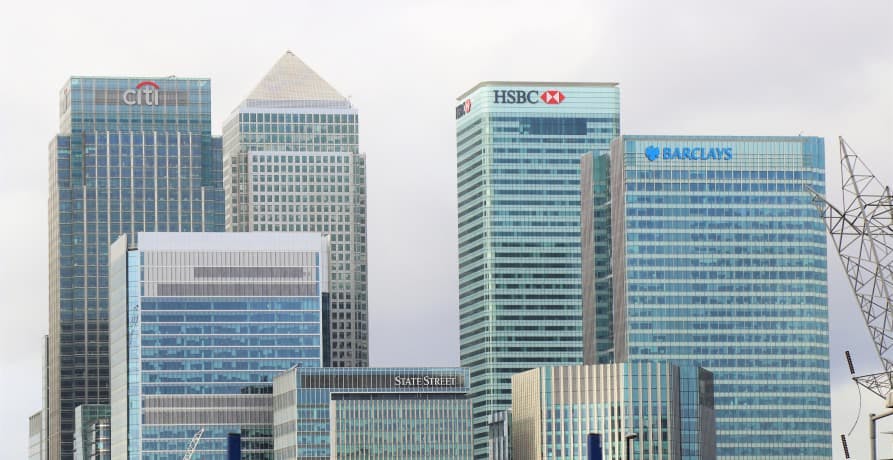
Impacts, Risks, and Opportunities (IRO) for CSRD Reporting
In this article, we’ll break down what IROs are, how to identify and assess them, and what CSRD requires in terms of disclosure.
ESG / CSR
Industries



The UK Sustainability Disclosure Requirements made substantial progress in 2024, with finalised rules and phased implementation schedules now taking shape. In this article, we’ll explore what the SDR means for investment firms operating in the UK, the key changes they face, and how it compares to the EU SFDR.
👉 What is the UK SDR? What requirements will it introduce? And how does it align with the EU SFDR?
The UK Sustainability Disclosure Requirements (UK SDR) are a set of rules developed to govern sustainability disclosures for financial market participants in the United Kingdom. The UK Financial Conduct Authority (FCA) has spearheaded its development to combat greenwashing and enhance transparency within the financial markets.
The Financial Conduct Authority (FCA) is the UK's financial regulatory body. It operates independently of the UK Government and is charged with regulating the financial services industry in the UK as per the Financial Services and Markets Act 2000 (FSMA). Its role includes protecting consumers, promoting competition between financial service providers, and maintaining stability within the industry.
👉 The FCA regulates the conduct of over 58,000 financial service firms and financial markets in the UK.

The UK government endorsed the International Sustainability Standards Board (ISSB) IFRS Sustainability Disclosure Standards (S1 and S2) in 2024 as the foundation for the UK’s Sustainability Reporting Standards (UK SRS). These standards are expected to apply to UK-listed companies starting from 2025, with a consultation planned to extend these requirements to other companies for fiscal years beginning no earlier than January 1, 2026.
The FCA aims to integrate the Transition Plan Taskforce (TPT) Disclosure Framework into its guidelines, ensuring companies clearly communicate their net-zero strategies. A consultation on transition plan disclosures for the largest UK companies is expected soon.
The FCA’s investment labeling regime was finalised in November 2023, introducing sustainability labels for funds. These labels: Sustainable Focus, Sustainable Improvers, and Sustainable Impact - help investors distinguish between products based on their sustainability objectives and ensure clarity around sustainability-related terms used in product descriptions. The anti-greenwashing rule, effective since May 2024, mandates that sustainability claims be clear, fair, and not misleading.
Firms began adopting the labeling framework on July 31, 2024, with full compliance deadlines for naming and marketing restrictions by December 2024. Entity-level disclosure requirements build on the FCA’s Task Force on Climate-related Financial Disclosures (TCFD)-aligned reporting framework.

The UK SDR applies to:
👉 For the time being the UK SDR will only apply to financial products and firms within the UK, though the FCA has stated that it may seek to extend the scope of the rules at a later date.
The main change introduced by the UK SDR is the label-based system of rating. Under the UK SDR financial products will be labelled based on the level of sustainability that can be attributed to the product. This is designed to help investors distinguish between financial products based on their sustainability credentials.
There are four different sustainable investment labels, each one with a different objective and intention:
Funds that maintain an evidence-based and robust standard of sustainability in the profile of the assets. For example:
Products with a specific sustainable outcome as an objective, consistent with an aim to achieve a predefined, positive, measurable impact in relation to an environmental and/or social outcome. This includes a “theory of change.” For example:
Funds that invest in assets that may not be sustainable at present but have the potential to improve over time. Asset managers must select KPIs to measure progress and include short- and medium-term targets for improvement. For example:
This label is addressed towards mixed-asset funds and other products that use a combination of the above three labelling categories. Funds must disclose the proportion of assets invested in each labelling category.
The UK SDR also introduces new disclosure requirements at both the product level and the firm level:
Product-level consumer-facing disclosures are required in addition to any existing disclosure requirements. These disclosures will be required even where the financial product does not have any label.
The consumer-facing disclosure requirement is intended to help investors understand a financial product's sustainability features. The information includes details on a product's sustainability objectives and how much progress has been made towards this. The disclosure information will detail the investment products policy and approach to management, and the KPIs used to measure progress.
Product-level disclosures provide more detailed information for a broader audience and fall under two categories:
Entity-level disclosures must be prominently displayed on the financial firm's website. These disclosures build on the FCA's TCFD-aligned reporting requirements.
There are 4 disclosure requirements that are based on the TCFD's recommendations, namely:
The UK SDR also introduces new marketing rules and restrictions around the naming and promotion of investment products in an effort to tackle greenwashing. The rules apply to all financial products that don't have a label.
For products without a label, the marketing and communications will be restricted. For example, it will not be possible to use language such as ‘ESG', ‘green', or ‘sustainable' in any customer-facing materials. However, certain provisions, such as restrictions on using sustainability-related terms, may differ for products exclusively targeting institutional investors.

The SFDR (Sustainable Finance Disclosure Regulation) is an EU regulation that imposes mandatory ESG disclosure requirements for EU financial market participants. The regulations came into effect in 2021 and aim to provide investors with transparency when it comes to the environmental or social aspects of financial products.
So how does the UK SDR compare to the SFDR and is there much overlap?
Unlike the UK SDR, the EU SFDR does not consist of labels that apply to products, instead the SFDR introduced different levels of disclosure. Depending on a fund's level of sustainability, it may fall under one of 3 different categories:
Only funds falling under articles 8 and 9 of the EU's SFDR will (potentially) meet the requirements of the UK SDR labels. However, since the two regulations are not aligned, article 8 and 9 funds will not automatically meet the requirements of the SDR labels - something that may cause confusion as a product may be considered to be sustainable in the EU, but fail to meet the sustainability requirements in the UK.
Another notable difference between the two regulations is that the UK SDR does not include a ‘do no significant harm' test as per the EU SFDR. Under the EU SFDR the ‘do no significant harm' principle applies to all sustainable investments and requires that in addition to contributing to an environmental or social objective, the investment fund must also be able to prove that it does not cause any environmental or social harm. The UK's FCA decided not to include this test as it felt it was overly restrictive.
Similarly, the UK SDR doesn't require financial firms to disclose Principal Adverse Impact Indicators. The EU SFDR on the other hand does require this. PAI indicators are metrics that require firms to disclose information on the investee company's principal adverse impacts (ie. prescribed factors relating to environmental, social, employee rights, human rights, anti-corruption, and anti-bribery matters).
In terms of similarities between the two regulations, both the SFDR and the UK SDR require pre-contractual, ongoing, and entity-level disclosures. However, where they differ is that the EU SFDR provides mandatory reporting templates, whereas, in the case of the UK SDR, firms will be left with the discretion to determine the content of disclosures.
| Aspect | UK SDR | EU SFDR |
|---|---|---|
| Sustainability Labels | Uses four labels: Sustainability Focus, Sustainability Improvers, Sustainability Impact, and Sustainability Mixed Goals | No labels; uses Articles 6, 8, and 9 to categorise funds |
| "Do No Significant Harm" Test | Not included | Mandatory for all sustainable investments |
| Principal Adverse Impact (PAI) Indicators | Not required | Mandatory |
| Disclosure Templates | Firms have discretion | Mandatory reporting templates provided |
| Applicability | Applies to UK firms and products | Applies to EU market participants |
| Alignment | Based on ISSB standards | Independent framework |

According to the FCA, over 450 investment funds and 1,500 asset managers, managing 10.6 trillion GBP worth of assets may fall under the scope of the UK SDR. And although some requirements are being phased in gradually, others will take effect more rapidly. Firms must act promptly to understand how their investment products will be impacted.
By proactively addressing these areas, firms can position themselves to meet regulatory expectations and build trust with stakeholders.
At Greenly, we specialise in carbon management solutions that empower businesses to reduce their environmental impact and align with evolving sustainability goals. Here’s how we can help:
Comprehensive Carbon Accounting
Track and analyse your Scope 1, 2, and 3 emissions with precision, enabling you to identify key areas for reduction.
Customised Action Plans
Create tailored decarbonisation strategies to meet science-based targets and align with regulations.
Supply Chain Sustainability
Optimise your supply chain by identifying sustainable suppliers and minimising upstream and downstream emissions.
Lifecycle Assessments (LCA)
Understand the environmental impact of your products and services across their lifecycle to make informed improvements.
Transparent Reporting
Create detailed, easy-to-understand reports that build trust with stakeholders and meet regulatory requirements.
👉 Partner with Greenly to make sustainability actionable, measurable, and impactful. Get in touch today!